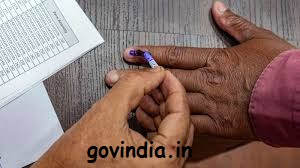Lok Sabha Elections in India 2024
Lok Sabha Elections in India 2024: A Comprehensive Overview
The Lok Sabha elections in India 2024 are poised to be a pivotal event in the country’s political landscape. As the world’s largest democracy gears up for its general elections, the anticipation, stakes, and implications are monumental. This article delves into the key aspects of the upcoming elections, from the electoral process and major political players to the issues at stake and potential outcomes.
Understanding the Lok Sabha
The Lok Sabha, or House of the People, is the lower house of India’s bicameral Parliament. It consists of 543 members, each representing a single constituency. Members are elected for a five-year term using a first-past-the-post electoral system. The party or coalition with a majority of seats forms the government, with its leader becoming the Prime Minister of India.

Key Dates and Schedule
The Election Commission of India (ECI) oversees the conduct of the Lok Sabha elections. The election is typically held in multiple phases over a month to ensure smooth management and security across the vast and diverse country. The exact dates for the 2024 elections will be announced by the ECI, but they are expected to take place in April and May, with results declared soon after the final phase of voting.
Major Political Parties and Alliances
Bharatiya Janata Party (BJP)
The ruling party, led by Prime Minister Narendra Modi, will seek a third consecutive term. The BJP’s platform is expected to focus on economic development, national security, and its record on social welfare programs.
Indian National Congress (INC)
The principal opposition party, led by Rahul Gandhi, aims to challenge the BJP by highlighting issues such as unemployment, agrarian distress, and social harmony. The Congress is also likely to focus on coalition-building with regional parties.
Regional Parties
Regional parties like the Trinamool Congress (TMC) in West Bengal, the Dravida Munnetra Kazhagam (DMK) in Tamil Nadu, and the Aam Aadmi Party (AAP) in Delhi play crucial roles. These parties often hold significant sway in their respective states and can influence the national political landscape through alliances.
Key Issues at Stake
Economic Growth
Economic performance will be a central theme, with debates on job creation, inflation, and agricultural policies. The government’s handling of economic challenges, particularly post-pandemic recovery, will be scrutinized.
National Security
National security remains a crucial issue, with focus on defense policies, border management, and counter-terrorism efforts. Relations with neighboring countries, especially China and Pakistan, will also be in the spotlight.
Social Policies
Social welfare programs, healthcare, and education reforms will be critical areas of discussion. The implementation and impact of schemes like Ayushman Bharat and the National Education Policy will be evaluated.
Governance and Corruption
Governance issues, including corruption and administrative efficiency, will influence voter sentiments. Transparency and accountability in government dealings will be key talking points.
The Electoral Process
Voter Registration
Ensuring a robust voter registration process is crucial. The ECI conducts extensive campaigns to update the electoral rolls and encourage voter participation.
Election Campaigns
Political campaigns have evolved with increased use of digital media alongside traditional methods. Social media, digital rallies, and data analytics play significant roles in reaching out to the electorate.
Voting and Counting
Voting is conducted using Electronic Voting Machines (EVMs), with Voter Verified Paper Audit Trail (VVPAT) for added transparency. The counting process is meticulously managed to ensure accuracy and credibility.
Challenges and Concerns
Electoral Integrity
Ensuring free and fair elections is paramount. Addressing issues like electoral violence, misinformation, and voter intimidation are critical to maintaining the integrity of the elections.
Voter Turnout
Maximizing voter turnout is a continuous challenge. Efforts to educate and motivate voters, particularly in rural and remote areas, are essential for a representative electoral process.
Coalition Politics
The fragmented nature of Indian politics often leads to coalition governments. Navigating the complexities of coalition formation and stability will be crucial in the post-election scenario.
Potential Outcomes and Implications
The outcome of the 2024 Lok Sabha elections will shape India’s policy direction and governance for the next five years. A victory for the BJP could mean a continuation of its current policies and programs, while a win for the opposition could lead to significant shifts in policy and governance style. Regional parties and their performance will also significantly impact national politics, especially in the formation of the government.
Conclusion
The Lok Sabha elections in India 2024 are set to be a landmark event with far-reaching consequences for the nation. As political parties gear up for the electoral battle, the focus will be on addressing key issues that matter to the electorate. The Election Commission’s role in ensuring a free and fair process will be critical in upholding the democratic ethos of the country. As the world’s largest democracy, India’s electoral process not only determines its leadership but also sets a precedent for democratic practices globally.

